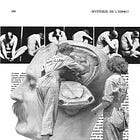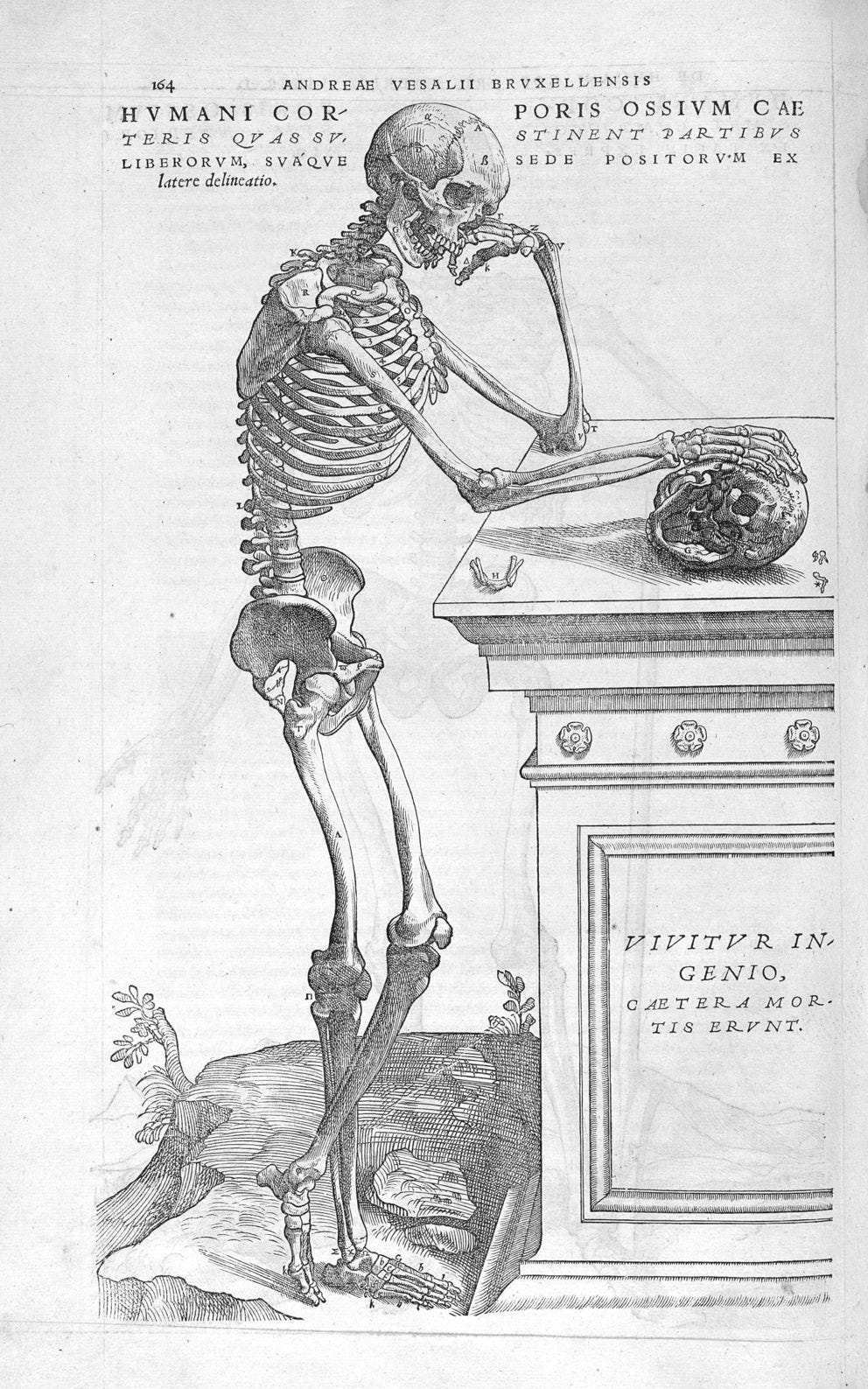The Dragons of Eden by Carl Sagan
Book Review | Intellectual history on how our brains evolved by adding new structures while preserving ancient ones. Explores the intersection between our primitive instincts and modern consciousness.
I cannot stress enough why anyone interested in intellectual history and evolution must read this intelligent book. This is, without doubt, the highest insight-per-word book I have ever read. It is a scientific book, but the writing is so smooth that it blends scientific rigor and philosophical reflection easily, which makes complex concepts understandable while maintaining intellectual depth.
To put simply, the book revolves around these themes:
Evolution and Adaptation: How natural selection shapes life forms and their need to adapt to changing environments.
Brain and Consciousness: Explore the relationship between the brain and mind, with Dr. Carl Sagan presenting his “fundamental premise about the brain” and its workings.
Time and Change: Contrasting our planet’s ancient history with humanity’s relative youth, it focuses on the need to adapt to our rapidly changing era. Dr. Carl Sagan argues that we must “adjust and adapt and control, or we perish”.
The most interesting aspect is how evolution built our brain through addition rather than replacement or restructure. Each new evolutionary step preserved the older brain portions while adding new layers with new functions. This happened either because the old function remained necessary or because bypassing it would have compromised survival.
Dr. Carl Sagan uses simple, direct language to explain complex ideas about evolution, consciousness, and human development. It’s a great combintion of evolutionary biology and neuroscience that takes us on a walk through time and mind.
Overall, it is a good reflection to consider both where we came from and where we might be heading. The greatest gift that evolution has given is consciousness, and this book talks about its beautiful journey as both a product of our past and a gateway to our future.
What I Understood and Will Take Away from the Book
Looking back to the beginning of our known universe - The Big Bang - I find it fascinating to consider whether this was truly the absolute beginning or perhaps just a point where all information about an earlier universe was erased. Dr. Carl Sagan’s discussion made me think about a possibility: What if the dark energy that currently drives cosmic expansion eventually weakens, allowing gravity to pull everything back into a singularity? Could this lead to another Big Bang, creating an endless cycle of cosmic death and rebirth? This reminds me of how some cultures view the cycle of reincarnation - where each new life begins fresh, without memories of past existences.
Dr. Carl Sagan presents an interesting perspective on humanity’s role in the cosmic timeline. Our existence seems very brief in the overall history of the world, but our future lies largely in our own hands. Thinking about it, we have created complex societies, systems, and order, and now we hold too much power over our own evolution - perhaps even giving nature and evolution the second spot in the power chain.
All human beings are members of the same species, Homo spaniens, which means, in optimistic Latin, “Man, the wise.”
At that point in times, there was indeed a clear difference in wisdom between Homo Sapiens and other species. Hence, the name “Man, the wise”. But in today’s world, do we, as a collective species, still deserve to hold this title? Looking at our impact on the environment, our fellow creatures, and our own species, I wonder if other species in the animal kingdom sometimes demonstrate more wisdom than modern humans.
There is a common notion that humans only use half of their brain capacity. From an evolutionary perspective, this would be quite strange. Why would nature develop such a complex organ if large portions served no purpose? Why all the buffer?
What fascinates me most is how, after each evolutionary step, the older portions of the brain remained and had to be accommodated while new layers with new functions were added on top. This process of evolution by addition, along with the preservation of existing structures, could have occurred for two main reasons: either the old function was still necessary alongside the new one, or bypassing the old system would have compromised survival.
That means, the oldest part of our brain, shared with other primates and our mammalian and reptilian ancestors, is still there. Still influencing us today. Think of it this way, deep within our minds, we carry the evolutionary heritage of ancient organisms. Could our myths about gaints, monsters, dwarfs, etc… be distant incidents of genetic or cultural memories from those times?
There was a mention in the book of how human child formation within the womb mirrors the stages in evolution of the brain. It passes through all the evolutionary stages we have gone through, with the brain evolving through all the stages throughout time, to finally reach our present brain. How cool is this? Before birth, we all have gone through all the billions of years of evolution while we were being formed.
He points out that an important evolutionary breakthrough came with the development of specialized brain areas dedicated to our fingers, mouth, and speech organs; and these are the ones which fundamentally distinguished us from other species. If we think about it, our capacity for learning and culture became possible through speech, while our hands enabled writing and technological advancements. This is when our species began storing information in our brains and outside us, rather than purely in our genes. The frontal lobes, located in the neocortex of our brain, are one of the latest and most advanced features. The ones that contribute to what really makes us human. They also enable us to anticipate and plan for the future, but this gift also comes with the burden of anxiety. If we think about it, our entire civilization might be viewed as a product of these frontal lobes.
Dr. Carl Sagan emphasizes that language development was a crucial turning point in human evolution. I find it particularly interesting how storytelling cultures flourished before the invention of writing, bridging our primitive past and our literate present. I have touched down some of the thoughts around this in another book review of “The Truth of Fact, The Truth of Feeling”.
This development raises interesting questions about our relationship with other species. The book discusses fascinating experiments teaching sign language to chimpanzees, and showing their capacity for learning and thought. So then, why didn’t they continue evolving along similar lines? One simple possibility is that humans may have systematically eliminated or distanced, opportunities and other primates, who showed signs of advanced intelligence, taking charge of natural selection in suppressing intellectual competition. It is also challenging to imagine our species not being the dominant force on Earth - perhaps this explains our deep fears about being overtaken by other species or extraterrestrial life. Did you ever dream of this scenario? I surely did!
Our dual heritage from reptiles and mammals is interesting. When removed from the structures of civilization, we can temporarily regress to a more primitive state of mind. Just think of the potential crimes the human mind is capable of and what horrors we are witnessing in today’s world. It is as if we carry within us the potential to revert to earlier stages of human development. Be that moral-less predator again. Perhaps this explains our deep connection to ancient artifacts and places - as if we are accessing some ancestral memory encoded in our genes. As if we were there, as if we lived there.
The mind of man is capable to anything - because everything is in it, all the past as well as all the future.
Joseph Conrad, Heart of Darkness
Our intuitive knowledge has deep evolutionary roots too, tracing back to the very origin of life through our genetic material. But rational knowledge and thinking is a much more recent development. There is a mention in the book that the processing and type of knowledge we access, either rational or intuitive, reflects the specialization of our brain's hemispheres. The left being more rational, the right more intuitive.
As someone who often experiences highly intuitive thoughts, I mostly struggle to verbalize my complex perceptions. This makes perfect sense now, understanding that speech is primarily a left-hemisphere function trying to translate right-hemisphere experiences.
For humans to succeed in the future, we need to find the right balance in how we live. The most successful societies will be those that accept two important parts of who we are: our basic animal instincts and our advanced human abilities. We need to let our unique human traits grow while still accepting our evolutionary past.
This explains why certain patterns in human behavior have persisted throughout our history. For example, our brain’s capacity for deep thinking and understanding evolved through elaborate periods of focused learning and storytelling. These traditional methods of knowledge sharing helped develop important neural networks that remain fundamental to our cognitive processes today. We still rely on those. While modern technology offers new ways to consume information, our brains still benefit most from engaging with content that allows for thorough processing and meaningful comprehension.
Right now, we are entering a new age of AI. Hoping the next step in human progress will involve humans and AI working together as partners, instead of one taking control over the other.
But this brings up an important point: when a species like ours creates technology that could destroy itself (which we have already), the selective advantage of intelligence is highly uncertain. So does that translate to, being intelligent might not always be helpful for survival anymore? Being dumb, surely doesn’t.
A Note to You
Have you ever experienced moments when your primitive instincts clashed with your rational mind? If you have read this intelligent book (and yes, I will always call it intelligent!), I would love to hear your thoughts.
Share your thoughts with me by replying to the email or leave a comment below.







